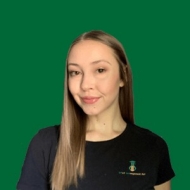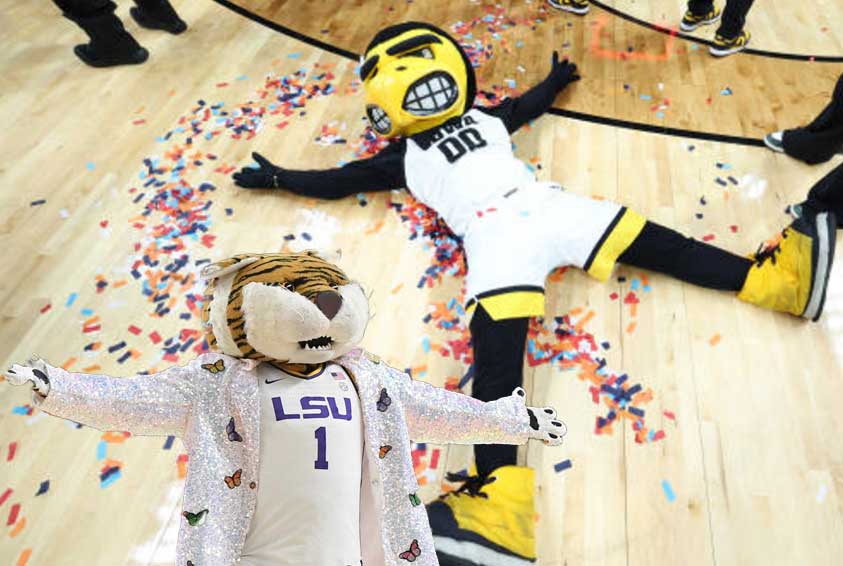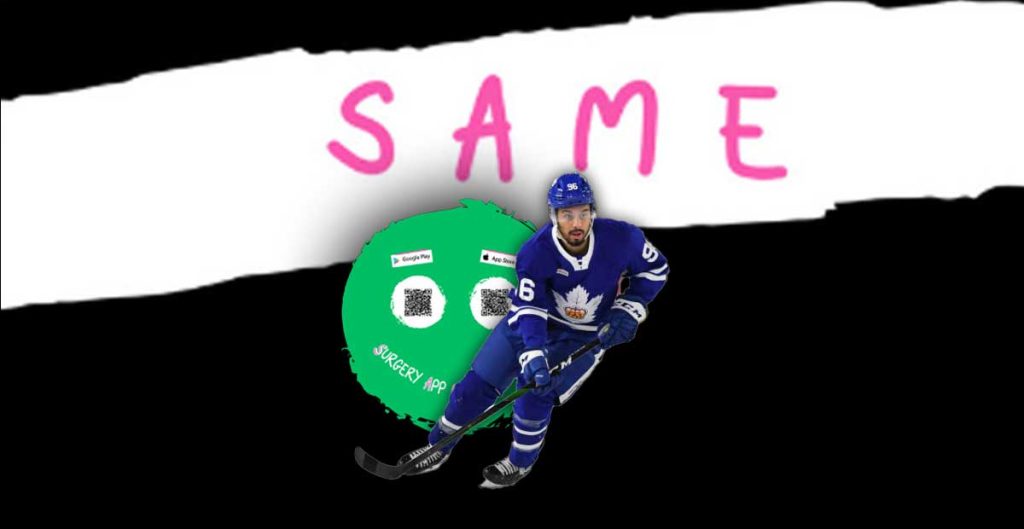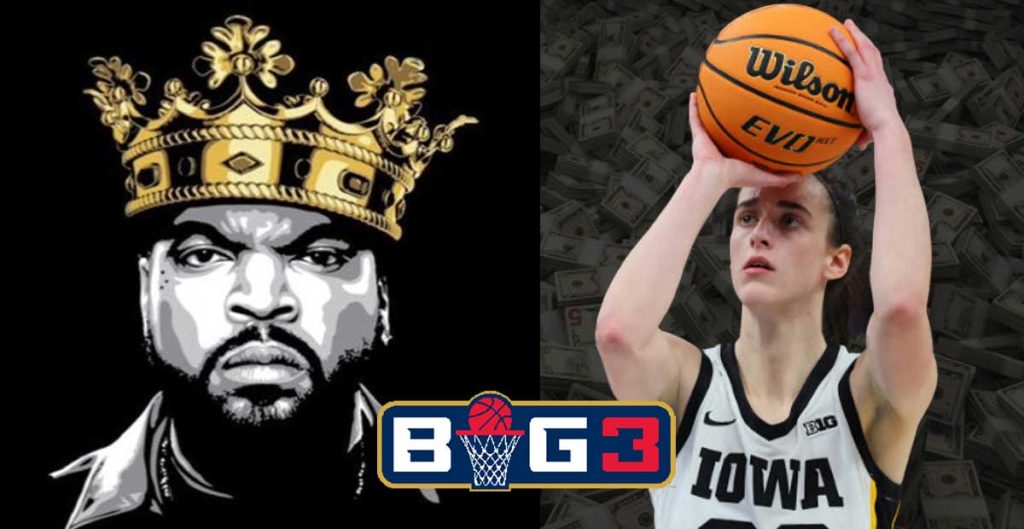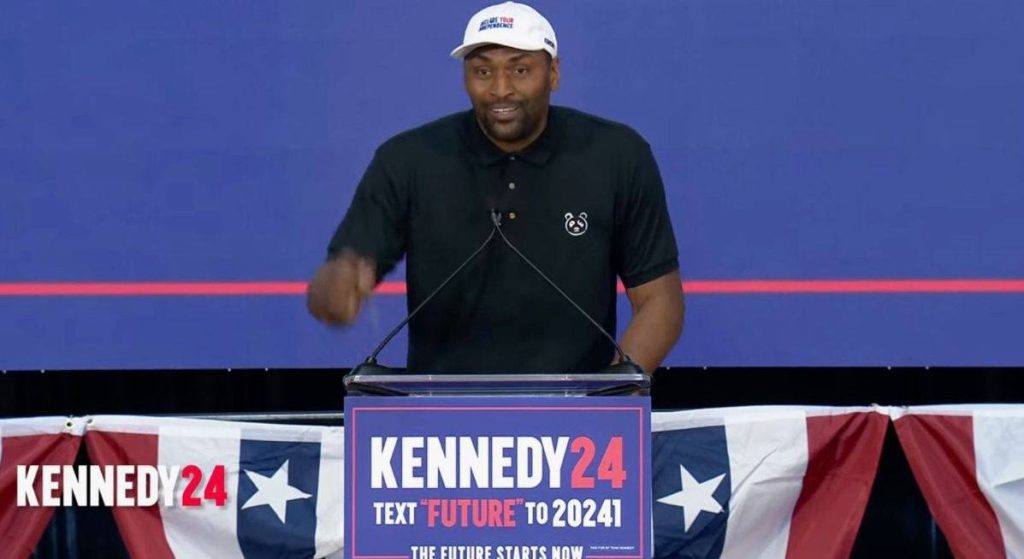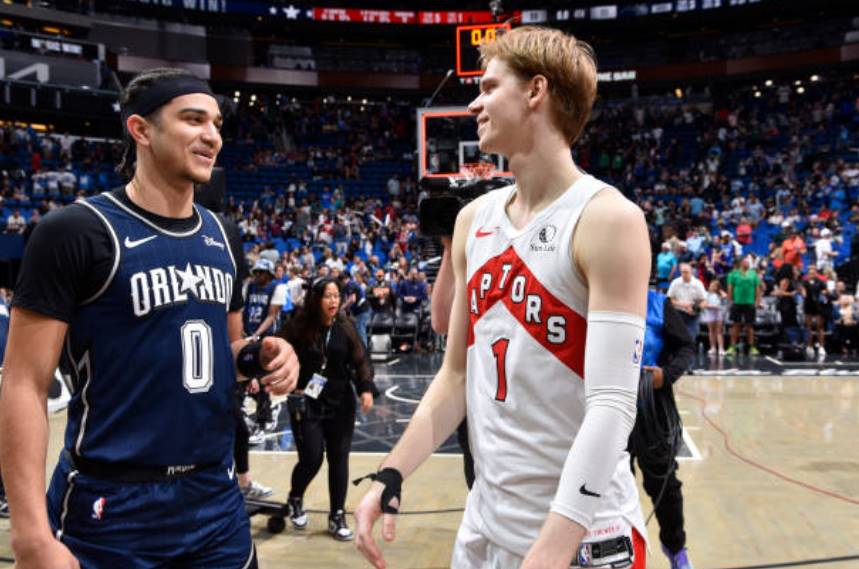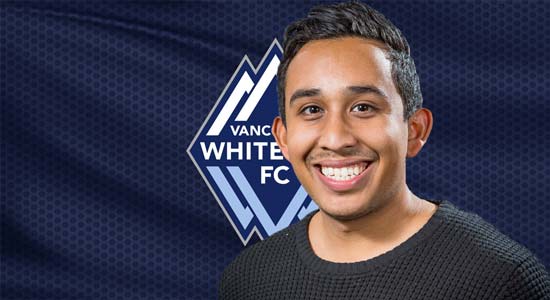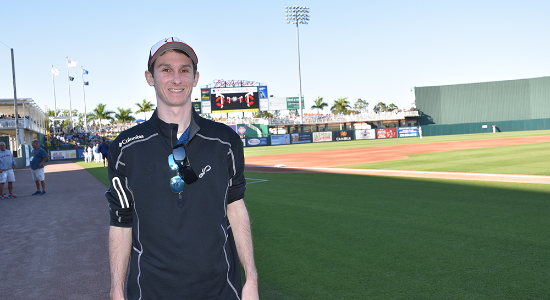
Spotlight On Minor League Baseball: Media & Public Relations With Pensacola Blue Wahoos Daniel Venn
Daniel Venn | Media & Public Relations Manager | Pensacola Blue Wahoos

I figured if I told them I didn’t know what job they were offering me, they wouldn’t want to offer it to me anymore…so I just said yes.
Daniel Venn
Media & Public Relations Manager
Pensacola Blue Wahoos
Tell us about your role as the Media & Public Relations Manager for the Pensacola Blue Wahoos. What does a typical day look like for you?
One of the most enjoyable things about working in Minor League Baseball is that there is no typical day. Every game day features a different theme and different promotions and preparing for those changes what the whole day looks like.
While things will pop up throughout the day like interview requests, roster changes, or theme-night-specific tasks, there are still a handful of things that get done every game day regardless. Let’s see how much of the game day schedule I can remember since we haven’t played baseball in such a long time!
- 9:00 AM: Arrive at the ballpark, catch up on e-mails/voicemails from overnight, see what’s happening on social media and if there are any fans we can respond to, trends we can jump on, etc.
- 9:30 AM: Staff Meeting
- 10:30 AM: Morning post on social media promoting tickets for that night’s game. Get to work on game notes, stat packs, and other press materials—my goal is always to have these waiting on our coaches’ desks when they arrive at the ballpark. Post previous game’s photo album on Facebook and sort and drop photos into our archive. Update BlueWahoos.com as necessary.
- 1:30 PM: Players and coaches have mostly arrived. Get lineup from our manager. Create lineup graphics for all social platforms. Knock out any pre-game interviews.
- 2:30 PM: Hopefully the other team has arrived and has a lineup ready. File any necessary roster moves with the league. Print game notes, stat packs, lineup cards, rosters, fan packs, and any new press releases and distribute them where needed throughout the press area and ballpark.
- 3:30 PM: Tease the broadcaster (a very important part of the day). Check emails for late media requests/inquiries. Check social. Get lineup graphic, pre-game sponsor obligations, last-minute call-to-action up on socials. Update online press box website with game notes and roster moves.
- 5:00 PM: Meet with game-day crowd photographer to go over necessary sponsor photos and other goals for the game, write lineups on the big fan chalkboards (my days as a high school teacher left me with the ability to write in straight lines and sort of neatly on a chalkboard so this falls to me), greet members of the media as they arrive and see if they have any needs before the game.
- 5:30 PM: Gates open. Roam with camera looking for good fan moments (players signing autographs, fans in the stands). Ensure we’ve got a player to catch first pitches/be part of any other pre-game ceremonies and grab photos of those as they happen.
- 6:30 PM: The game has begun! I typically photograph the first 3-4 innings, allowing me to get a photo of every batter in our lineup and the starting pitcher.
- 7:30 PM: Grab something to eat. Head up to press box to edit photos. I usually finish editing around the 7th inning. If it’s a close game or there’s a relief pitcher that I don’t yet have photos on file for, I’ll head back down and photograph the end of the game.
- 9:30 PM: Game ends. Immediately post final score and whip up sponsored Player of the Game graphic for social. Print box scores to pass out to media and bring to both coaching staffs. Meet our media outside our clubhouse and they’ll let me know which players/coaches they’d like to interview post-game. Send out a post-game recap to our media list with the box score and game photos.
- 10:30 PM: Head home.
It seems like a lot when it’s all typed out like that, but by the second week of the season, it becomes routine.
Did you always want to be in this field? When did you decide sports media was your career focus? Would former teachers and/or friends be surprised that your career took this direction?
I got into baseball almost accidentally. As a kid, I’d always wanted to be a sportswriter. That was the dream. But, then the only college that would let me on their baseball team didn’t have a journalism or sports management major. So, I got a teaching degree.
Teaching is a terrific, impactful career and I enjoyed it. I chose to go the international route and got to see a lot of the world I wouldn’t have otherwise ever experienced.
Long story short, I was living in Nicaragua and the teaching project I was working on there was coming to an end and I planning to return to the United States. It was November, which is a really bad time to look for a teaching job given that the school year just started and no one is hiring. So, I knew I had a weird 9-month or so time gap between then and when I could realistically get a full-time teaching job again the next school year.
Having always dreamed of working in baseball, I thought “Well, now is probably my best (and last) chance to pursue this”. I had no idea how to get a job in sports, so I went to the MiLB.com website and clicked the “Teams” tab. A list of every Minor League team in the country popped up and I went one-by-one down the list, going to each team’s staff directory, finding the name and email of someone who sounded important, and sending each a cover letter and resumé.
Then, I did the same for every independent league and college summer league I could find. All-in-all, I sent over 200 emails.
I got four responses. Three of those responses said they weren’t interested or that they hired at the Winter Meetings. The Dunedin Blue Jays (Advanced-A of Toronto and their Spring Training location) were the fourth team and set up a call with me. We talked and then they called a second time, and then a third. At the end of the third call, they said: “Do you want the job?”
Problem was, I didn’t know what job they were offering me! They had coincidentally posted a job listing online the same day I sent them my cold-call email, so they just thought I was applying for that job. I had never seen the job listing.
I figured if I told them I didn’t know what job they were offering me, they wouldn’t want to offer it to me anymore…so I just said yes. They sent me a contract that said “Media Relations Coordinator at the top”. No joke, I googled “What is media relations?” to find out what my new job was.
Thankfully, Dunedin is Toronto’s Spring Training home, and I got to spend the first few months on the job following Jay Stenhouse and his talented media relations team around throughout Spring Training. When Spring Training ended and the minor league season started, I just did what I’d watched them do and it seemed to work out!
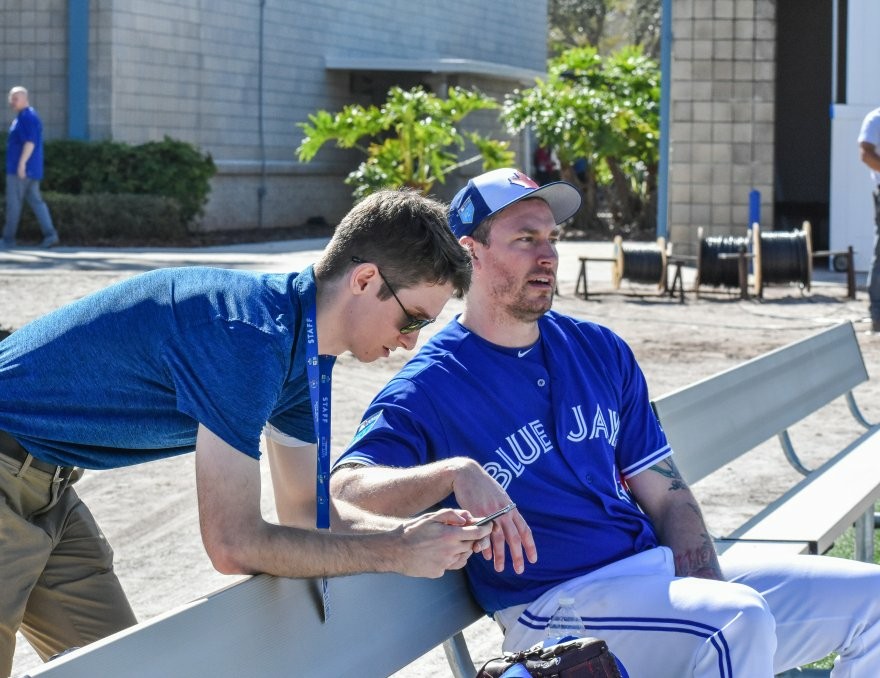
How important is social media for you personally? Which social networks do you use most frequently, find hardest to navigate and use, and see changing the most? Also, how do you keep up with the continual sports news bombarding you (global stories, viral videos)?
For me, personally, not very important. I’m not active at all on my own social media accounts. I use Facebook just for Messenger to keep in touch with friends and family back home. I use my Twitter simply for scrolling purposes to keep up with all the news out there. I didn’t even have my own Instagram until the very end of last year, and now it’s just a portfolio for my sports and travel photography.
At work, though, it’s a good chunk of my day and one of the most important parts of my job. Social media is such a powerful way for teams to connect with fans, now more than ever.
Right now, the Blue Wahoos only use the big three: Facebook, Twitter, Instagram. We do have a LinkedIn, but that’s managed by our sponsorship team.
We’re currently not on Snapchat or TikTok and that’s, in my mind, our biggest miss. Know any talented job seekers who want to come to Florida next season and get those started for us?
In terms of keeping up with the constant stream of new content on social in the sports world…I’m a sports fan first and someone who works in sports second. Whether this was my job or not, I’d still wake up in the morning and scroll Twitter to see what’s going on in the sports world and I’d still sneak a peek whenever I could at work. Keeping up with sports is fun for me and I’m just lucky to be able to call it my day job.
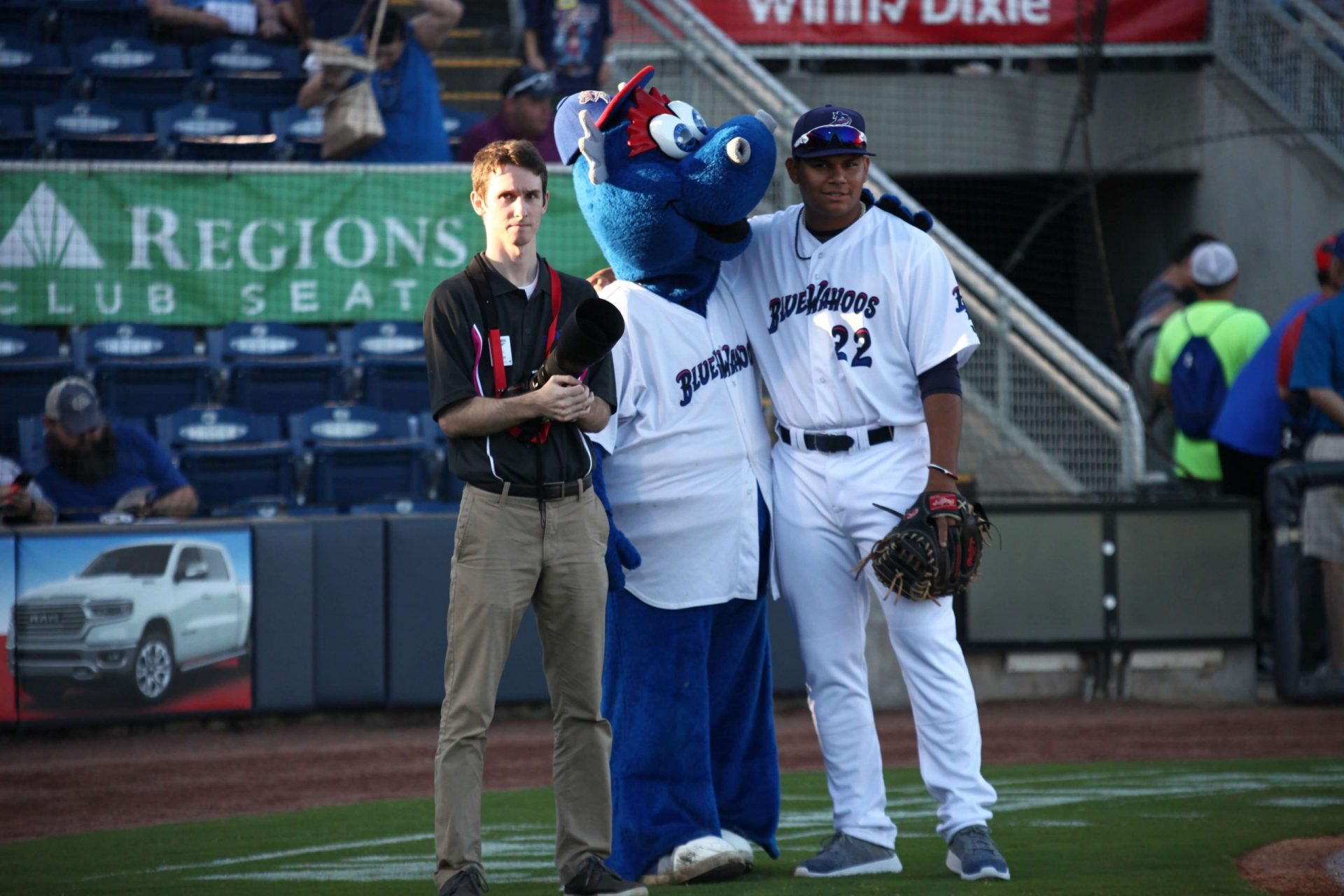
In your role, you manage all of the Blue Wahoos’ social media accounts, oversee all media relations and even photograph for the team! How are you able to manage everything at once and ensure it is up to standard?
First and foremost: It’s a team effort. I get to work with really talented, dedicated co-workers each day and nothing gets done without them. One of the basic tenants of working in the Minors is that “everything is your job”. When the team around you embraces that and is always willing to step into any other department and help out, you get results.
Second, you have to accept that sometimes you just can’t manage everything at once. You’re going to make a typo on social. You’re going to miss getting a photo of a big moment. You’re going to make a graphic with the wrong date on it. You’re going to go home feeling like you went oh-for-four with four strikeouts some nights. Be willing to laugh at yourself and get back at it tomorrow.
Lastly, you’ve got to enjoy what you do and be willing to put the work in. There will be long hours. You’re going to spend nights, weekends, and holidays at the office. You’re going to feel worn out being at the ballpark from 9 AM until 10:30 PM, especially in the middle of a 10-game homestand. Even on your day off, roster moves are still going to happen and you’re going to get fan questions on social that need responses and game notes will still need to be written when the team is on the road.
I genuinely enjoy what I do, who I get to do it with and look forward to showing up at the ballpark each day and that makes it feel less like something I ‘have’ to do and more like something I ‘get’ to do. No matter what, I always remind myself that I’m getting paid to watch baseball and that can never be all that bad.
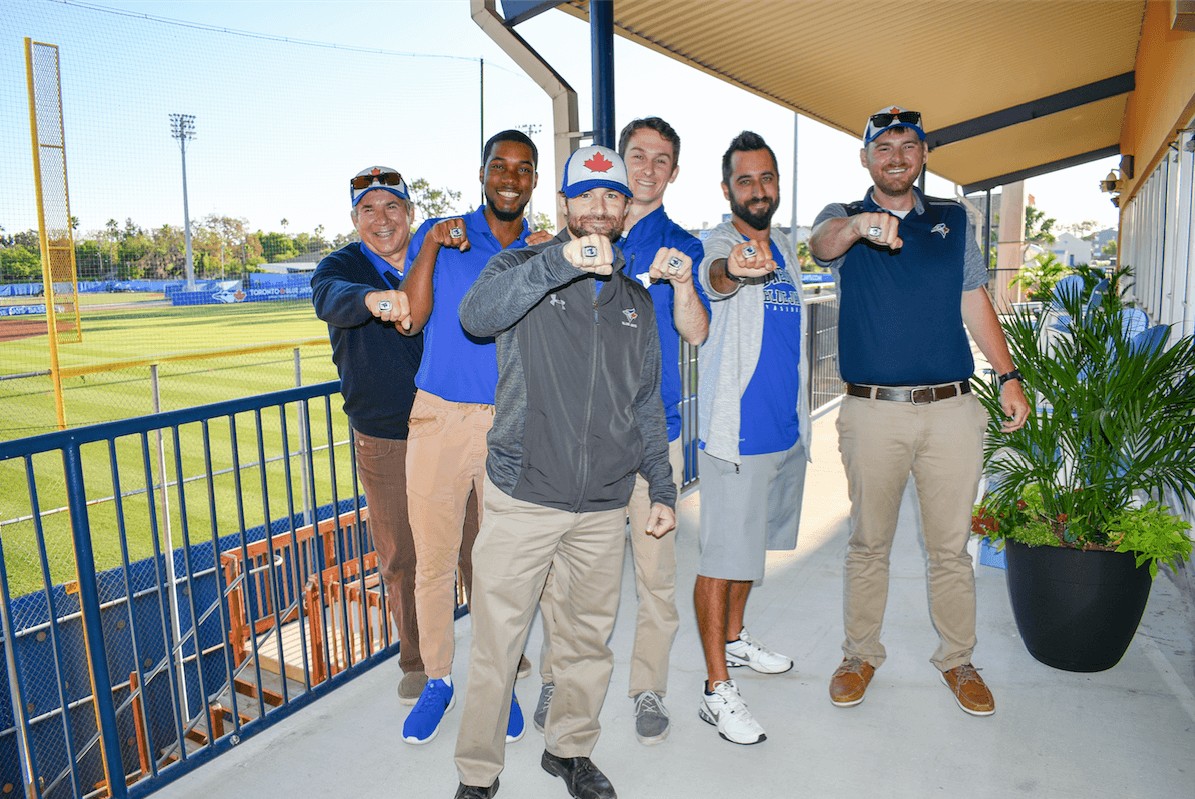
Tell us how you and the Pensacola Blue Wahoos are finding ways to connect with colleagues and other stakeholders in new ways in light of the COVID-19 pandemic. What have you found successful?
I’ve been so impressed by the creativity and innovativeness of the Blue Wahoos staff over the past three months. The team has consistently found ways to continue to make unforgettable ballpark experiences available to fans in a way that is safe, affordable, and family-friendly.
As soon as we found out that the season was delayed, the box office, season ticket, and sponsorship staff handwrote a letter to every Season Ticket Member, mini-plan holder, and sponsor. They sent out a couple thousand handwritten notes thanking our customers for their support. What a cool gesture!
Our Food & Beverage team has been incredible as well. When the season was postponed, they immediately began offering curbside food service and pre-packaged meal/grocery packages. When it became safe to do so, they started serving lunch, dinner, and brunch at the stadium. They’ve mixed in Thirsty Thursdays, Happy Hours, trivia nights, and BINGO competitions that have been incredibly popular and allowed fans to enjoy the ballpark seven days a week.
On the events side, besides being a near full-time restaurant, our ballpark has hosted movie and firework shows, an on-field disc golf course, high school graduations, youth, amateur, and high school baseball, batting practices, and other community events. We even put our entire stadium up for rent on Airbnb!
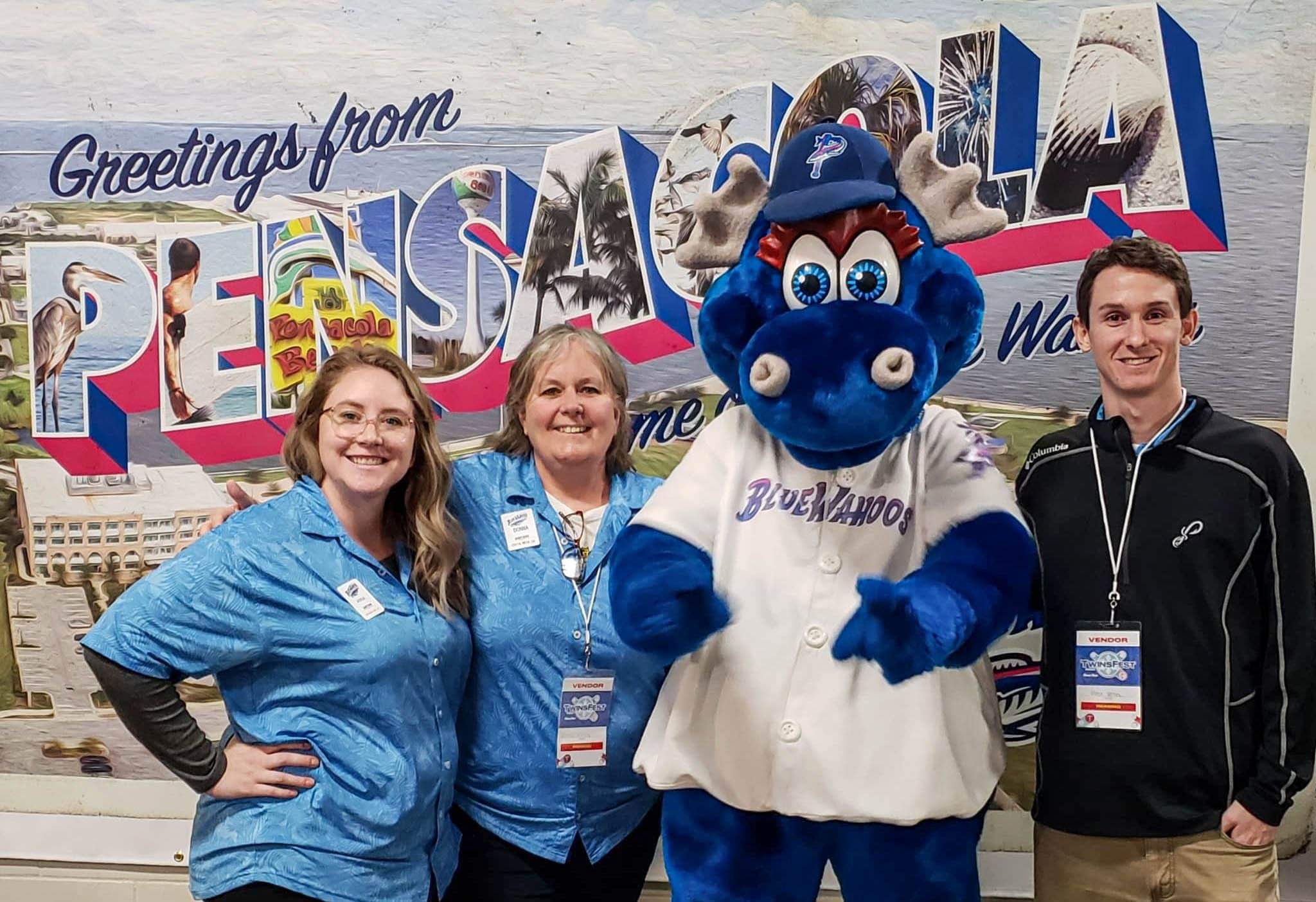
If someone wants to be successful in PR or Sports Media, what do you believe are the three most important skills, or attributes they need to have?
- Seek out learning opportunities. Every new skill you can learn will make you more valuable to your current team and help you advance. There’s an unlimited number of Youtube tutorials out there that will help and spending your lunch break or 30 minutes at night watching will help you now and later. I’ve worked for three teams with ‘media relations’ in my title, and my job responsibilities at each have been completely different. “PR” can mean so many different things, especially in the Minor Leagues where staffs are small. Writing, web design, graphic design, video editing, in-game production, social media, publications, marketing, ad-buying, stat and scorekeeping, broadcasting, customer service, and even putting the mascot suit on and making a fool of yourself can fall under the broad banner of “PR”. And outside of PR, there’s going to be days when two guys in the box office call in sick and you’ve got to jump in and sell tickets or help out in the concessions or the team store. The more you can learn how to do, the more successful you’ll be in the industry.
- Be willing to put the work in. That goes hand-in-hand with seeking out learning opportunities because people with strong work ethics already are searching out ways to learn and improve. Working in PR often means being available to answer a media inquiry at odd hours, writing game notes when the team is on the road and the rest of your co-workers are enjoying a day off, firing off Tweets on the weekend, and doing graphic design from your couch at night. It’s never going to be a 9-to-5 job with an hour lunch break and weekends off. You’ve got to be willing to put the work in, and in exchange, you get to do something really, really cool.
- Enjoy it. Even on the bad days, even on the 14-inning game with a rain delay in the middle days, you’re getting paid to watch a sport that everyone else in the ballpark had to buy a ticket to watch with you. My dad used to always say that ‘the worst day fishing is still a good day’, and I always feel that way about working in baseball.
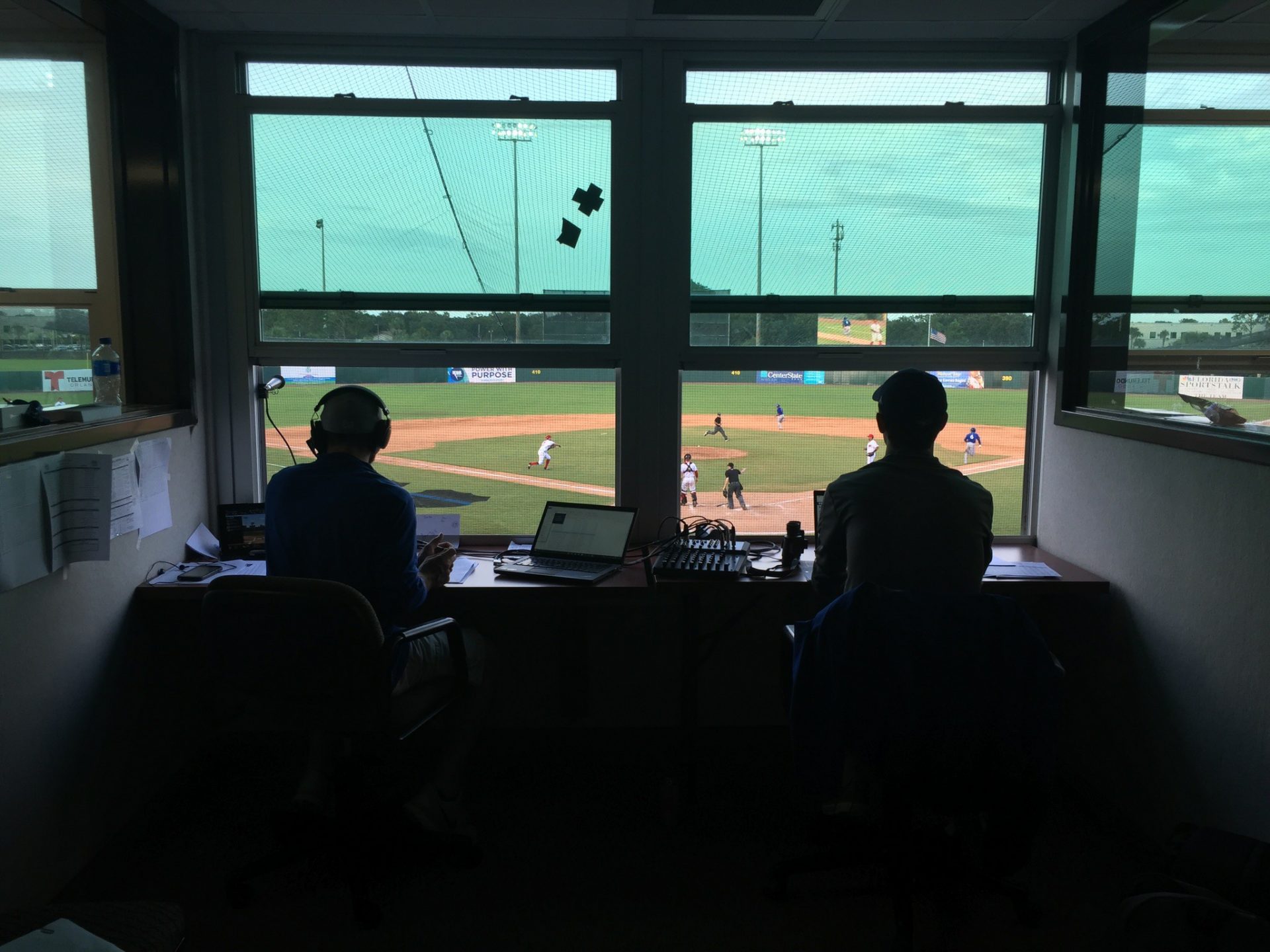
[get_current_post_author_pic_and_name]
Daniel Venn’s path into the sports industry was accidental. However, he knew he wanted to work in baseball and thus, set his mind to achieving that goal. In a sense, his career found him! Everything fell into place perfectly and now, Daniel is a seasoned Sports Media professional. With that being said, Daniel was willing to share what he’s learned throughout his career with us! If you’re looking to get a foot in the door, perhaps try Daniel’s cold-call email method… you never know what may happen!
The Latest

